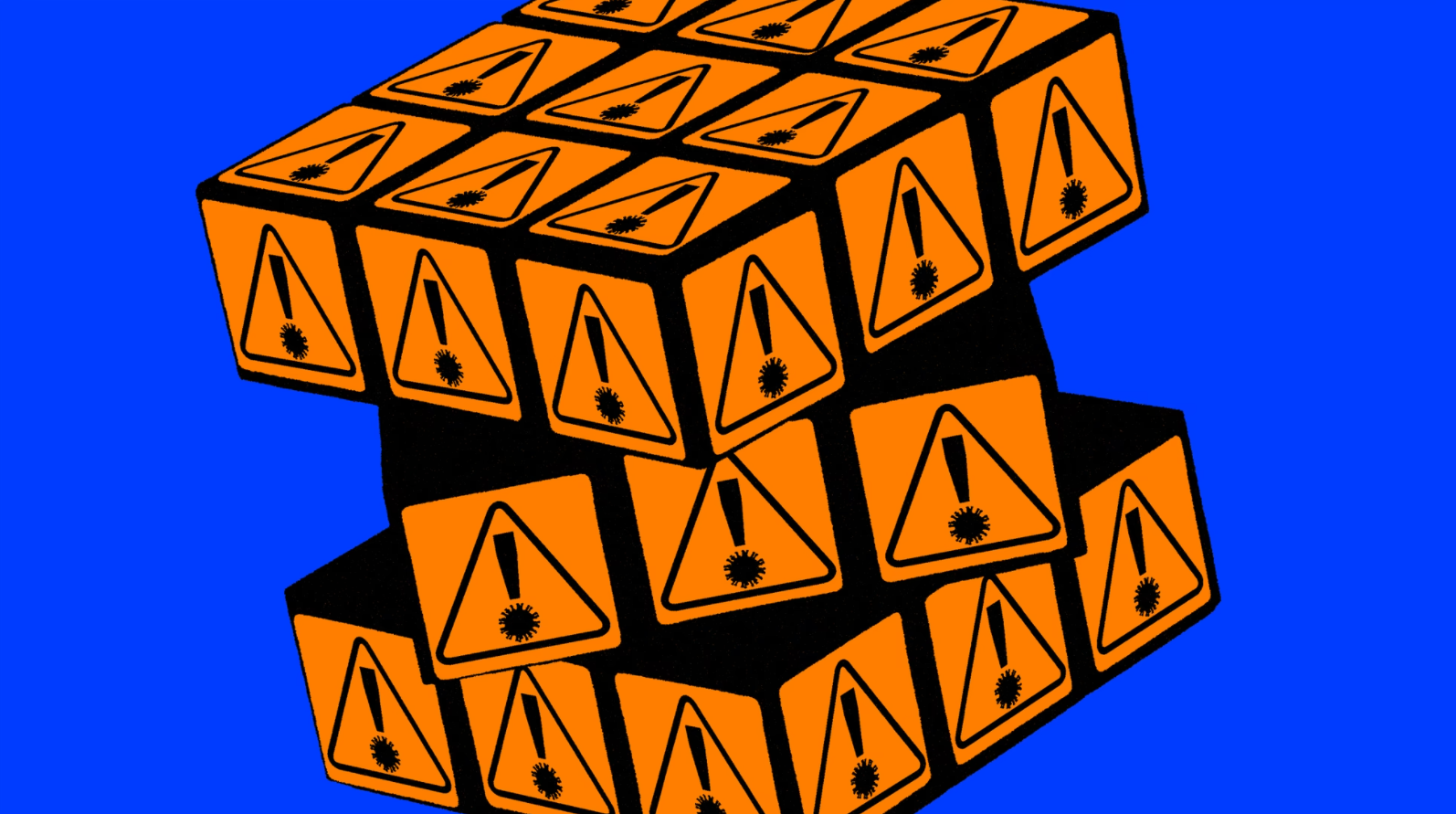General Discussion
Related: Editorials & Other Articles, Issue Forums, Alliance Forums, Region ForumsThe Coronavirus Could Get Worse
Delta is far from the last variant. But what shape the virus takes next depends on us.https://www.theatlantic.com/science/archive/2021/08/coronavirus-evolution-vaccines/619875/

If evolution is a numbers game, the coronavirus is especially good at playing it. Over the past year and a half, it’s copied itself quickly and sloppily in hundreds of millions of hosts, and hit upon a glut of genetic jackpots that further facilitate its spread. Delta, the hyper-contagious variant that has swept the globe in recent months, is undoubtedly one of the virus’s most daring moves to date. This variant is the product of unfettered transmission, and will thrive further on it; if allowed to, Delta could morph into something even more formidable. “Delta is already a really strong competitor,” Michal Tal, an immunologist at Stanford University, told me. “It could get significantly worse.”
We can’t precisely predict what worse will look like. There is no playbook for evolution. Delta could continue to ratchet up its rate of spread, or it could be ousted by another super-infectious variant. But the speed that has powered Delta’s transmission for months probably can’t sustain SARS-CoV-2 forever, at least not on its own. Humanity’s collective immunity to the virus is growing, which means the next variants we encounter might be better off taking a tack that relies a lot more on stealth. “There’s some sort of tipping point where immune evasion becomes a bigger fitness advantage than transmission,” Stephen Goldstein, an evolutionary virologist at the University of Utah, told me. No one yet knows exactly where that tipping point is—just that we will probably, eventually, collide with it.
This transition will mark a new stage in our extended parlay with SARS-CoV-2. Viruses depend intimately on their hosts—and the global population no longer looks or acts as it did when this one was a fresh threat. A large fraction of us, especially in vaccine-wealthy countries such as the United States, now have some degree of immunity, simultaneously suppressing the pathogen’s ability to pass among us and pressuring it to circumvent those shields. Our defenses are upping the ante for the virus. And the virus will likely rise to meet it. The cyclical nature of this game might sound disheartening. But nothing will ever put us back at square one. Even as the virus evolves away from us, we can give chase. As immunity builds, our dalliances with the virus will trend milder, shorter, and less frequent. With vaccination on our side, we’re giving the virus fewer turns at the board, and slowing the pace at which the game is played. Although we can’t yet trounce SARS-CoV-2 for good, we can buy ourselves time to make our next decisive move.
In broad strokes, the rules of evolutionary play are simple enough. Researchers still aren’t sure where, or in whom, most variants arise, but they’re clearly more likely to sprout when the coronavirus is allowed to stick around and make more and more of itself, whether in an individual person or in a whole population. Mutations happen like typos during a virus’s messy replication; the majority are inconsequential, even detrimental to the pathogen. But scattered among these genetic glitches will be the occasional windfall, a mistake that helps one version of the virus outcompete its kin. Those proportionally rare events become more absolutely common when given more opportunities to occur. “The longer the virus persists, the more opportunities it’ll have to sample what makes it more fit,” Oliver Fregoso, a virologist at UCLA, told me.
snip
ProudMNDemocrat
(16,784 posts)That keeps spreading, burning everything in its wake.
Those who do not mask or get vaccinated will die first. That could happen in any family, mine included.
Sherman A1
(38,958 posts)I believe “Will” is more correct.
ms liberty
(8,573 posts)The stupid might really kill us all.
berni_mccoy
(23,018 posts)Who has modeled this stuff, it’s not a question of if, but when.
Klaralven
(7,510 posts)So the virus has a large enough population of billions of unvaccinated in which to spread and mutate.
Some parts of the world may never be vaccinated, since it is now apparent that it is not a one-time event, but will need boosters and additional shots modified to combat variants.
Some parts of the world may never be vaccinated, since the pandemic will have swept them and burned out, providing natural immunity. Continuing endemic disease is mild, and they have few elderly people and high death rates anyway.
So the only way to keep new Covid variants out of the US is to severely restrict international travel.
Evolve Dammit
(16,723 posts)bucolic_frolic
(43,132 posts)I know I'm joking there, but seriously there is no effort I've heard of that seeks to develop an anti-virus. Polio vaccine for example was an oral dose. Today they could probably put it in milk. Occasionally, pesticides are a biological agent, an antidote to the pest. Essential oils - eucalyptus, camphor, clove - can reduce the severity of TB, pneumonia. Despite all the bio-engineering, we're not there yet apparently.
"More bleach. And my deliberations with scientists are confidential. They should pay me!"
durablend
(7,460 posts)In other words, WE'RE FUCKED.
gordianot
(15,237 posts)IronLionZion
(45,429 posts)like a DeSantis variant.
Farmer-Rick
(10,155 posts)I keep wondering what is next. Despite virologist claiming that the likelihood of it becoming more deadly is small, this Delta variant is more deadly, so was the 1918 pandemic second wave.
I expect one more deadly varriant spreading among the unvaccinated. It's how the 1918 pandemic rolled.
roamer65
(36,745 posts)Missn-Hitch
(1,383 posts)Pepsidog
(6,254 posts)marie999
(3,334 posts)Climate change will eventually kill enough people that we will live in small groups and it will make the spread of a virus more difficult.